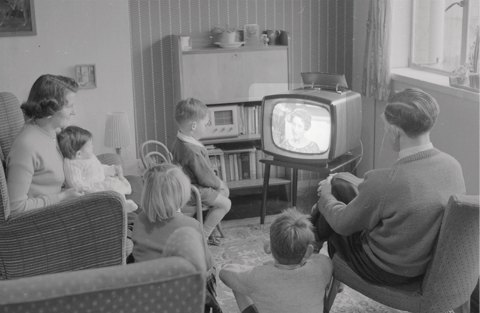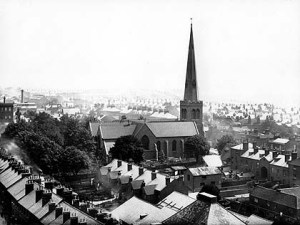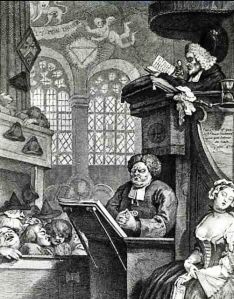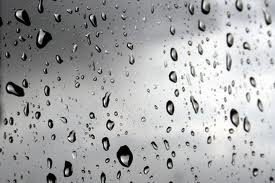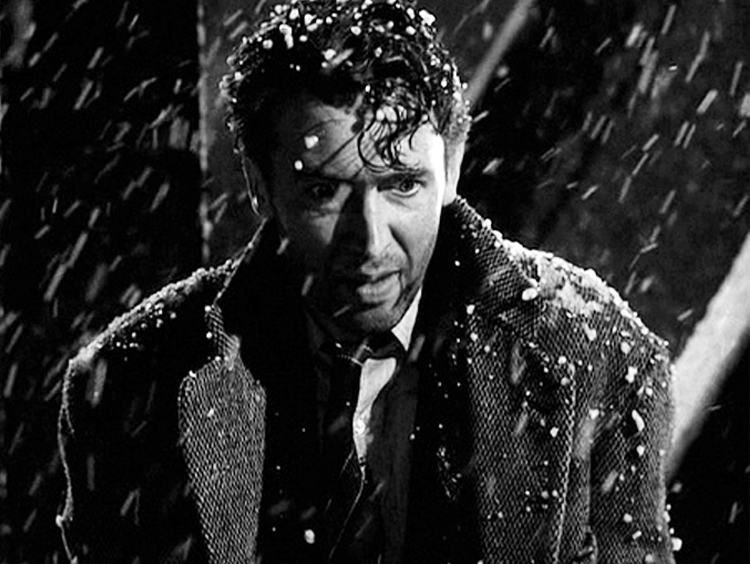Archive for the ‘Grey’ Tag
Another Wet Sunday
Filed under: Cultural Reflux | Tags: Alan Sillitoe, Britain, Galton and Simpson, Grey, Growing Up, Keep Sunday Special, News of the World, Rain, Salvation Army, Saturday, Saturday Night and Sunday Morning, Small Faces, Social Observation, Songs Of Praise, Sunday, Sunday Afternoon, Sunday Roast, Sunday School, Sunday Teatime, Tony Hancock, War Cry, Wet Sundays, Work, WP Longform
 Leave a comment
Leave a comment Britain never invented the wet Sunday – that would be too preposterous: blasphemous even – but if there were intellectual rights to claim over a natural phenomena then Britain would have a case in any court. “What the British have added to the stock of this ancient Christian calendar day M’lud is theirs – and theirs alone – and should be recognised as such. I therefore rest my case.”
If only it were that simple… how could it be when the main elements are a combination of the deeply melancholic; the emotional; the absolute core of the British psyche and – even from these essentially secular times – the spiritual: a crammed bottom drawer of everything that can’t be measured empirically.
It’s a secret compartment that is only occasionally opened and surreptitiously at that; behind the process of shoulder-shrugging aloofness – awkwardly flirting with embarrassment – that is our defining lot as a nation. Botox may have replaced the stiff-upper lip as facial indicator of choice but reaction to a wet Sunday is still more likely to be about turning up the collar to experience than exploring how we feel.
There are heatwaves – 1959, 1976, 2003 and all that – they really aren’t just a rumour; or three days and a thunderstorm of the regulation summer but ultimately the wet Sunday is the vanguard of our default mode: the grittiest underlying strand of our British fibre. Barbecues and shorts: lying in the sun in the park and street café culture can last for a whole summer but deep down it is strangely unnatural here: a collective daydream postponing the inevitable.
Rain will always come to wash away the warm memories. And there is a curious romanticism/resignation to a wet Sunday that embodies stoicism, duty, and repression – both religious and cultural – that are reflected back as we look wistfully into the oily puddles on pot-holed streets.
Growing up saw a combination of both the pervasive and the universal reaction to a typically British Sunday from foreign visitors. Their second remark – after denigrating the weather as an opening conversational gambit – was almost always; where can we find a drink around here? An open shop? A proper hotel? A point even?
To many that was the problem that gnawed in a nutshell. Sunday was a day where it was difficult to make a sale in what was avowed to be a consumer society – let alone discern a sense of service to the customer beyond the one at the local church at eleven. It’s difficult for anyone under thirty to transport to a time when the Sunday genie was firmly in the bottle – no long-licensing hours; no glimmer of the twenty-four hour society: no internet, no mobiles, limited hours and channels on TV. Sunday the test card of the week: nothing to do…
Those forever damned in sermons – which was most of the population – went to the intense lunchtime session at the pub or read the scandal sheet about the tart and the vicar’s sexual congress. Those unsure of their status could go to church, shift uneasily on the hard pews and learn exactly where they stood in line to the eternal kingdom while musing about the extra-curricular activities of the vicar of their parish. Today we are much less likely to be assailed by a fire and brimstone breathing religion that kept the soul fit for purpose: more likely the aroma that fills the nostrils is of a flame-grilled burger adding to the contrasting barometers of rise in the obese and widening moral vacuum.
There was a time when it was in fact easier to buy the News of the World – Hello Reverend! – than to buy a bible. Liquor was the ultimate minefield where the collected anomalies in the law were essentially leftovers from another more pious age. Remember the conscience-stirring visits of the Salvation Army to the Sunday session with the War Cry that stifled even the most hardened drinker’s protest? Or the Sunday teatime street corner gathering promoting temperance and Jesus as twin saviours via a few stirring hymns? As the worm turned and business interests became more resentful and organised there was an at times bitter and eventually losing campaign for Keep Sunday Special that nonetheless still stutters nostalgically into life every so often at the current perceived excesses.
 Special!? That was a word for the young to consider… frogmarched to Sunday School or made to do their weekly chores; or catch up on homework after Saturday. Saturday always had a big relaxed, relieved smile on its face: it was facile, fun, films and football – and for the adult members of the family the Saturday option. A cornucopia that Sunday held at bay by dint of more than an accident of the calendar. Saturday meant the week was over – thank God – albeit a day early: Saturday was part celebration, part getting your retaliation in quick: big plans; the family shop; the get some living down you because tomorrow you can’t touch a drop.
Special!? That was a word for the young to consider… frogmarched to Sunday School or made to do their weekly chores; or catch up on homework after Saturday. Saturday always had a big relaxed, relieved smile on its face: it was facile, fun, films and football – and for the adult members of the family the Saturday option. A cornucopia that Sunday held at bay by dint of more than an accident of the calendar. Saturday meant the week was over – thank God – albeit a day early: Saturday was part celebration, part getting your retaliation in quick: big plans; the family shop; the get some living down you because tomorrow you can’t touch a drop.
For many Sunday was less characterised as a day of rest – more a day of recovery. Alan Sillitoe’s classic 1960’s presentation of working class factory life in the novel – Saturday Night and Sunday Morning – is as much about the come-down day as the night before. There is something of the fresh air antidote to hard living in the novel’s pages. However, it shares the long-held view that Sunday is essentially the aftermath and the repercussions: from that big night out; from drug session; Saturday sexuality or when high on everything life superficially had to offer.
It is of note that a key part of the campaign for broadening out opening hours was as an answer to the social effects of this one day of concentrated hedonism that was perceived as encouraging a live for today mentality. The possibility that every day becomes a Saturday as a result seemed to elude those who argued loudest. Where economics are involved common sense often goes out the window.
Sunday – and a wet one at that – was pinched and compulsory. It was a family day which meant doing what others wanted so you could all be miserable together. It was presented as a time to think; a time to breathe; a time to get ready for the week ahead and connect with loved ones. This is Sunday as a chance to get in touch with the internal side: the time to consider events but without the self-consciousness of today’s definitions. The abiding trouble was that the time to think concentrated the mind on how little there was to do, how the milk had run out; or how depressing Sunday was with the rain that added a harsh gloss on proceedings. It became like a mini-Christmas once a week: a test run for all the family enmities that school, college and the working week kept a lid-on.
For what was the ‘normal’ Sunday than British cliché on a cinematic scale. Of happy families and Sunday roast; brisk walks and rosy cheeks; dunking biscuits in front of a roaring fire, snoozes and board games. Definitely not bored games – for there was no place for ambivalence and double-meaning where Sunday was concerned. A family that prayed together stayed together. There was no space in this for festering lie-ins where alcohol and the smell of dodgy food slowly oozed from pores as major organs looked forward in desperation to their only down time. None of the small town suburban boredom.
It was a day to promote culture and sporting prowess – healthy pursuits of the mind and body as opposed to the latent evil of Saturday. H&E with none of the top shelf connotations. Now the highlight in any love letters to Sunday are extended R&R, B&Q, DFS and a chargrilled brunch from M&S
What was available on Sunday TV made us experts in old films, classic serials – although this often reminded of school – and antiques. The no-man’s land of afternoon and its resigned catatonic state stretched into the early evening when the point of Sunday was reiterated by the schedule. We had no songs of praise for Sundays… Sunday was a psychological pit pre-school return: first day of work. Mood low-key, expectant and depressed. Nerves disturbing the weekend equilibrium – the strange unsettled feeling in the tummy on the run-down past teatime. Yes, it was all over for another week as you put your clean school clothes or work gear out for the morning fumble. Whatever your sentiment this one part of the weekend will forever be damned as Sunday Bloody Sunday: that it’s the bridge – the corollary to Monday. Given this it was a brave person or a fool who went out on the lash on Sunday evening – that’s if they could find somewhere open to indulge such an outrageous exhibition of hedonism.
In increasingly busy lives the novelty of this old style wet Sunday might be seen as a blessing; a respite where able to get some peace or withdrawal. But for those in the know it was essentially boredom with a Craig Revel-Horwood pronunciation; clock-watching and a ‘character-building’ long day. The Small Faces’ Lazy Sunday Afternoon might be a classic of the genre but the Sunday they described was bucolic… a summer ideal of Cockney small talk and dozing; big skies, music hall traditions and psychedelic imaginings – all dreamy church spires with bell towers calling out to the converted over a green timeless landscape. The very antithesis of the wet Sunday.
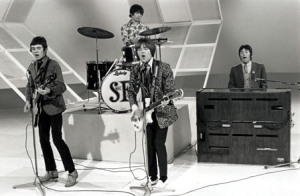
Alright Steve you can A-roody-doody-do, A-roody-doody-di-day Off. We’re talking a wet one here, OK?…
The humour of Tony Hancock is more painfully accurate to what was endured. You might laugh but this was trench humour from deep down and a vaulted window into the hurt inside. His performance in the Galton and Simpson-penned Hancock’s Half-Hour – Sunday Afternoon At Home stands the test of anytime. Hancock says more in a sigh – “Oh dear; oh dear… oh dear me…” about the overwhelming, grey alienation of a typical British Sunday than successive generations of gloomy British novelists’ psycho-traumas ever could. The last word in repressed sexuality, limited opportunity, social pariahdom and buttoned-down emotion.
Grey is our colour and we should celebrate the fact with our one hundred and one varieties of slate and other nuanced shades. Let’s have a National Grey Day. So much more apt than all the mock carnivals that jam our streets. Dulux Paints missed a big promotional trick here. Imagine a chart for visitors or even an app… The creative space for naming the shades an even bigger opportunity for involvement and celebration/commiseration.
Remember… that with the classic wet Sunday we’re not talking about any hint of set fair. This was an experience without hope and optimism. The slowest moving of clock faces ticked toward oblivion. The day was set; the die cast – the threatening or dead grey skies existed from dawn. You want appreciation? Then appreciate the subtle shift from deadly dull to black. The study of rain was more fundamental. No endless supply of bodycon wearing weathergirls; technological implements and computer predictions then. Lord we felt the rain in a way that spoke through the generations.
Celebrate the various types of rain that were our birthright including: the cold drizzle; the deceptive light rain or colourfully-colloquial flight of gnats that was our gift to the world – the ‘dry’ day that still made you wet to the core; the wind lashed downpour where the window-hammering crescendo turned a view of the horizon a mixed media blur. Or the tin-roof timpani – the clattering deluge on garage or out-house that provided the onomatopoeia to the complete lack of physical percussion inside.
Watching the rain drift down the window was almost a national sport. Drawing faces in the condensation on your bedroom window the lightest of reliefs. It was a time to live in the moment – a gift that is increasingly a disappearing trait – that conversely/perversely led to personal creativity, resourcefulness and the positive rebellion of making do. Without too many Sunday-worthy connotations it was a valuable life lesson. If there was any sermon needed here it is that we made our own entertainment instead of receiving it all electronically drip fed. Self-reliance eh? Sounds like the language of one of those public-information films that filled the space between programmes that are valuable selling spots now. The latent spirit of a wet Sunday. And if anyone needs reminding… there’s sure to be another one along in a week or two. You can rely on it.
